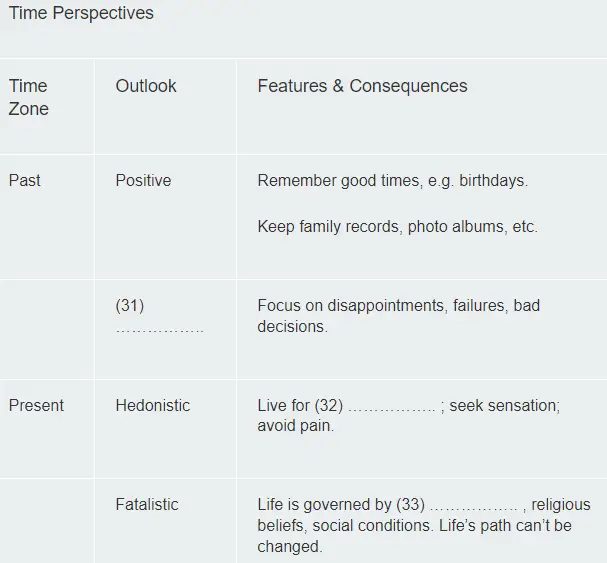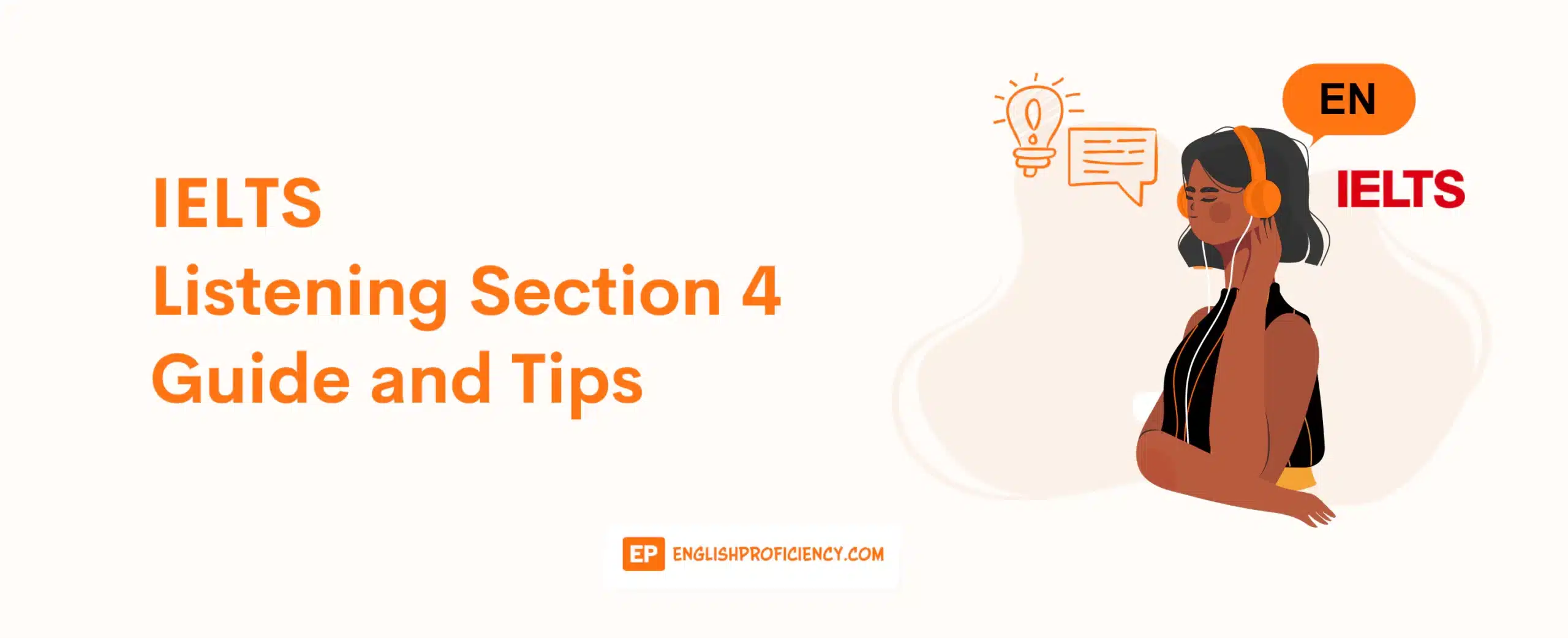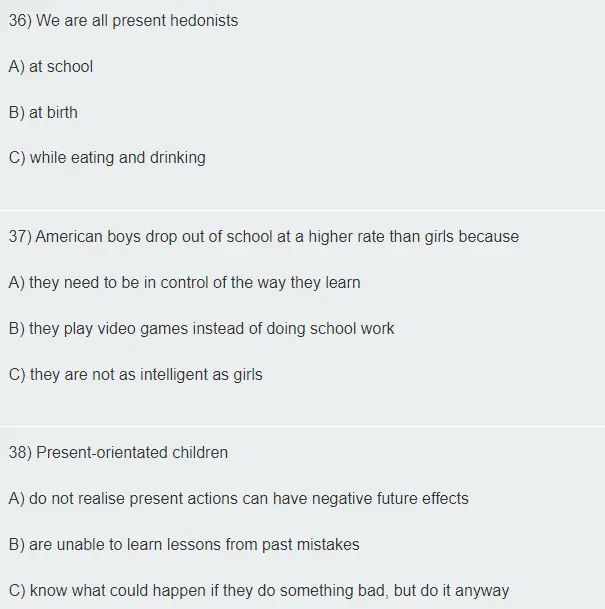The IELTS Listening Section 4, being the last part, is the most challenging in the IELTS Listening Test. Hence, you should exert extra effort in preparing for this part of the test.
Do not worry; we got you covered. With the help of this article, you will have a better understanding of the test format, get to know the different question types that will appear in the IELTS Listening Section 4, and learn the different techniques and strategies you can employ while preparing for the test.
We have also included the different tips that you should follow on the actual day of the test.
IELTS Listening Overview
The IELTS Listening Test is one of the four tests in the IELTS Test.
It is the same for the IELTS Academic and the IELTS General Training modules. It has four parts, and there are ten questions to answer in each part. The material is played via audio recordings that will be played only once.
The IELTS Listening Section 1 is the first of the four sections of the IELTS Listening Test:
- Part 1 or Section 1
- Part 2 or Section 2
- Part 3 or Section 3
- Part 4 or Section 4
IELTS Listening Section 4 Format
The final and fourth part of the IELTS Listening Test is a speech or lecture with just one person about an academic subject. It is a brief academic talk that lasts about five minutes.
It is the most challenging part of the test, and there is no break in the middle, unlike the other parts. However, about midway through the audio recording, the speaker may take a little pause.
While listening to the audio recording in the IELTS Listening Section 4, pay close attention to the instructions. To aid you in recalling information, we strongly advise you to take notes as well.
Read the instructions carefully and follow them, especially the limit of words/numbers required. Even if your answers are correct, you do not follow the instructions if they are considered incorrect.
You may write the answers on the question booklet as the audio recordings are played. You will be given extra time to transfer your answers on the answer sheet afterward.
IELTS Listening Section 4 General Listening Tips
Taking the IELTS Listening Section 4 can be nerve-wracking. You may feel anxious and nervous.
After all, you will only be able to listen to the audio recordings only once.
To help you feel at ease and give your best performance, here are the most effective tips and strategies you should remember as you take the IELTS Listening Section 4.
- Do not be concerned about time.
Most students are naturally inclined to be quick on tests, answering as many questions as possible within the time limit. However, the key to ace the IELTS Listening Section 4 is to remain patient.
There will be at least a 30-second to 1-minute pause between each audio recordings. It is like taking a break. You will also be given extra time to transfer your answers afterward.
- Do not panic.
The answers in the IELTS Listening Section 4 are sequential, meaning they come one after the other.
If you miss the answer to one question, do not worry. The following question will be answered in the next 30 seconds. There will be enough distractions to keep you focused.
- Have a rough draft.
Conversations in the IELTS Listening Section 4 could be between two and three individuals or simply one person lecturing. The proper answers to the questions could change as the dialogue progresses.
For example, an address for a location can be used as a distractor, leading to the correct response after a series of adjustments. To ensure that you are paying attention, the spelling is occasionally addressed. So, do not jump the gun if you want to be sure you transfer the correct answers.
- Know the ‘hints.’
Take note of the question’s clues. Before beginning the listening test, you will be given approximately a minute to read over the questions and look for the desired response, such as a number, measurements, or a name. You may take notes on the expected answer in your rough sheet.
- Beware of ‘traps.’
Distractors appear when ambiguous information or misunderstanding among the speakers, just as there is in a natural conversation.
It might be as simple as asking what the speaker’s name is and then saying something like, ‘Hi, my name is Dan’, ‘Hello, Stan,’ or ‘No, sorry, this is Dan’. The correct answer is Dan, but if you did not listen to the entire exchange, you could mistakenly write ‘Stan,’ which is incorrect.
- Double-check your answers.
Minor mistakes and a few careless mistakes can mean the difference between a 5.5 and a 6. Be careful when writing your answers.
The examiners are not just checking how proficient you are in the English language; they also assess whether you can follow simple instructions.
Here are a few examples of how minor mistakes may cost you in the IELTS Listening Section 4:
| Candidate’s answer: | Correct answer: | Type of mistake: |
|---|---|---|
| hamster | hamsters | The answer should be in the plural form |
| 40 | $40 | The unit is not specified |
| Dutsh | Dutch | Wrong spelling |
| He went to the hospital. | hospital | The answer should be one word |
Tips Per Question Set for IELTS Listening Section 4
Knowing your ‘enemy’ will win you the IELTS battle. Weeks (or months) before taking the IELTS Listening Section 4, study and understand the different types of questions that might appear in the IELTS Listening Test.
Strategize and plan ahead of time what method works best for you to answer them more efficiently.
1. Multiple-Choice
Multiple-choice questions will have one correct answer or multiple correct responses. Carefully read the question to know how many answers are required.
You may also be given a lengthier list of possible answers and be told that you must select more than one accurate answer. You may be asked to have a deep mastery of certain topics or a broad awareness of the basic substance of the audio recording.
2. Form, Note, Table, Flow-chart, Summary Completion
You will also encounter a completion type of test in the IELTS Listening Section 4. You have to fill in the gaps to answer questions about the audio recording. Follow the word limit as your write your answers.
Read and follow the instructions very carefully because the number of words or numbers you should write will vary. A word limit is always given.
For example, ‘YOUR ANSWER SHOULD BE NO MORE THAN TWO WORDS/NUMBERS.’ If you do not follow the instructions, your answer will be marked wrong, so bear this in mind.
3. Short Answer Completion
You must read the questions and then create a short answer using information from the audio recording in the short-answer question type. Test takers are occasionally asked to mention two or three points in response to a question.
‘YOUR ANSWER SHOULD BE NO MORE THAN TWO WORDS AND/OR A NUMBER’ is an example of a word limit you exceed the word limit, your response will be marked incorrect, so check the word limit carefully for each question. Hyphenated words, such as ‘in-depth’ and ‘left-handed,’ are treated as single words.
How to Prepare for the IELTS Listening Section 4
Before taking the IELTS Listening Section 4, equipping yourself with the most effective techniques is the key to achieving a great band score.
Make sure you follow the tips below as you prepare for the most challenging section of the IELTS Listening Test.
- Get used to different accents.
You should practice listening to radio programs broadcast in the United Kingdom to familiarize yourself with the accent and terminology used in the tests, as you may hear ‘naught’ instead of ‘zero’ on occasion.
Because the test requires you to listen rather than observe graphics, we recommend listening to the radio rather than watching tv programs.
- Practice with topics that interest you.
When practicing, consider topics that are interesting to YOU. If you enjoy professional tennis, you should listen to professional tennis podcasts. Listen to stories about Roman history if you enjoy Roman history. It is common knowledge that we pay more attention to what we want to hear or like hearing.
Try this strategy to encourage yourself and get the most out of every listening practice. You might even find yourself enjoying it!
- Be your own thesaurus.
Synonyms are significant in all sections of the IELTS Test, not just the IELTS Listening Test, as you are undoubtedly aware.
You must demonstrate your ability to employ synonyms while listening to the audio recordings. Have vocabulary drills to enhance your skills in synonyms while preparing for the test.
- Think in English.
One key rule that many linguists would agree on is that you can learn a language by thinking in that language.
Many English students attempt to translate everything in their brains. It is not a good idea. There are two major issues with translating. It is, first and foremost, slower. Second, you recall your native tongue while forgetting English.
You will not have time to translate throughout the IELTS Listening Section 4. You will also need to memorize crucial English words. So, when you are practicing English, make sure you are thinking in English.
- Learn English in real life.
Keep in mind that English is not only a test. More importantly, it is a language. The IELTS Test assesses your command of the English language and your ability to communicate in it. Using English in real life is one of the most effective ways to learn a language and perform well on tests.
Every day without having a conversation with someone is a lost opportunity. So, the next time you have the chance, chat, text, call, email, discuss and laugh in English.
- Take note that you only listen once.
It is the same in real life. You only get one chance to listen to the audio recordings. Many of us would welcome the opportunity to listen to the material again, but IELTS does not provide this opportunity.
When taking practice tests, only listen once to get used to it. Make an effort to discover your listening flaws and concentrate on improving them.
For a comprehensive guide on preparing for the entire IELTS test, check out our complete IELTS preparation guide.
The IELTS Listening Section 4 may be challenging, but it does not mean that achieving a high band score is not possible. You can still get your desired band score if you prepare and practice enough.
Follow the tips and strategies we have listed in this article, and they will help you give your best performance in the test.
Understand the test format and know how the test is conducted. If you do, there is no way you will not be able to ace it. All the best!
Practice Questions for IELTS Listening Section 4
Over the years, the official websites of IELTS and the British Council have published past papers from the IELTS Listening Section 4 to help candidates prepare for the test. Here are some of them:
Example 2:
Complete the table below. Your answer for each should be no more than three words/numbers.

Example 3:
Complete the sentences below. Your answer for each should be no more than three words/numbers.

Additional FAQs — IELTS Listening Section 4
How Can I Improve My Listening Section 4 in IELTS?
You can get a high band score in the IELTS Listening Section 4 by equipping yourself with the best materials and resources.
Utilize the mock and practice tests from IELTS available online to teach your ears how to listen to different accents.
You also have to familiarize yourself with the test format and understand how your scores are marked.
Is the Order of the Responses the Same as the Order of the Questions in The IELTS Listening Test?
Yes. The IELTS Listening Test questions are set up in such a way that when the tape is played, you will hear the responses in order.
All IELTS Listening question types follow the same pattern. Listen attentively and do not lose your focus, or you will lose track of your answers.
Do I Get an Extra Sheet of Paper to Take Notes in the IELTS Listening Test?
No, you will not be given an extra sheet of paper. However, you can write on the question booklet and underline keywords as you listen to the audio recordings. What you write on the question booklet will not be marked.
Be careful when you transfer your answers on the answer sheet, as the examiners will mark this.
Can I Read the Questions Before the Audio Recordings are Played in the IELTS Listening Test Section 4?
Yes, you will be given half a minute to browse the questions in the IELTS Listening Section 4 and the other sections as well. Take advantage of this opportunity.
Pay close attention to the words closest to the gaps. This will help you identify the key information you need to watch for when the audio recordings are played.


